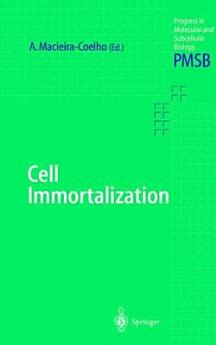Cell Immortalization
Apr 2013 · Progress in Molecular and Subcellular Biology Book 24 · Springer Science & Business Media
eBook
208
Pages
reportRatings and reviews aren’t verified Learn more
About this eBook
The problem of the long-term proliferation of cells is a seminal one. It has always been a hot subject in biology, a source of far-reaching hypotheses, even more so now when explanations for the mechanisms of cell prolifera tive mortality or immortality seem within our reach. A question which is still debated is whether an infinite division potential can be a normal trait or is always the result of modifications leading to abnormal cell growth and escape from homeostasis. In general, investigators have been advocates of one of the two extremes, universal limited or unlim ited normal proliferative potential. Since the long-term proliferative potential of cells concerns regulation of development, regeneration of tissues, and homeostatic control of cell growth, in brief survival of living organisms, and since the regulation of these processes is so different along the evolutionary scale, it is not surpris ing that there does not seem to be any universal trait. The question of whether cells are endowed with finite or infinite prolifera tive phenotypes has to be seen using the perspective of comparative biology.
Rate this eBook
Tell us what you think.
Reading information
Smartphones and tablets
Install the Google Play Books app for Android and iPad/iPhone. It syncs automatically with your account and allows you to read online or offline wherever you are.
Laptops and computers
You can listen to audiobooks purchased on Google Play using your computer's web browser.
eReaders and other devices
To read on e-ink devices like Kobo eReaders, you'll need to download a file and transfer it to your device. Follow the detailed Help Centre instructions to transfer the files to supported eReaders.







